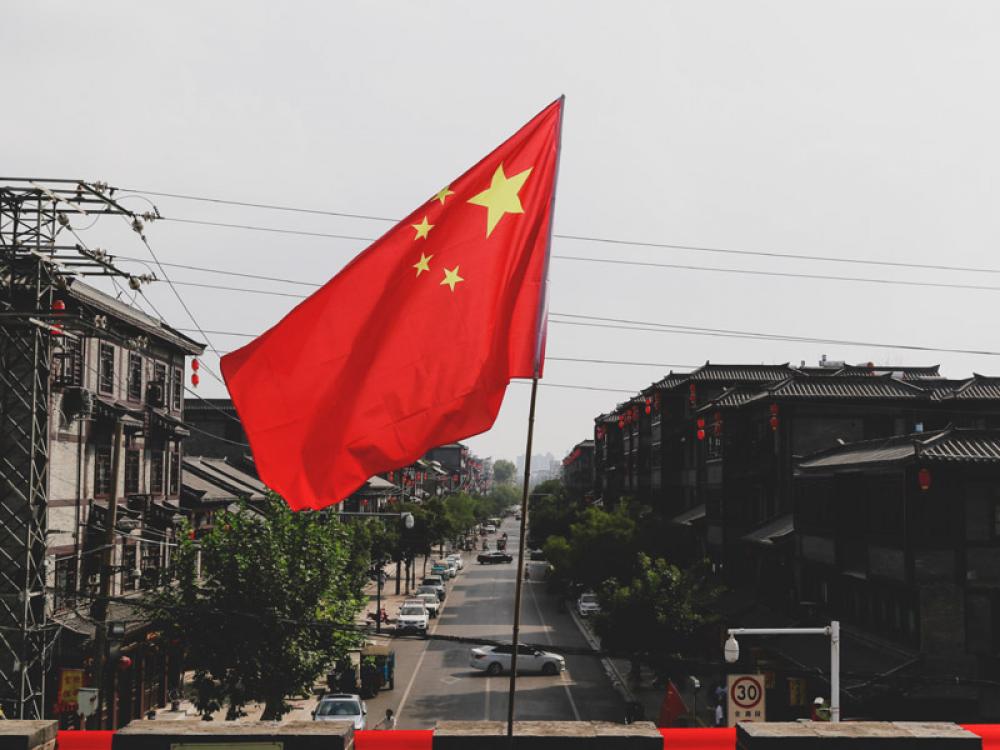Just Earth News | @justearthnews | 13 Jun 2023, 04:24 am Print
 China
China Unsplash
A recent survey has revealed that press freedom in China has reached its lowest point to date during and after the pandemic, giving rise to concerns regarding the safety of citizen journalists who are subject to scrutiny by the ruling Chinese Communist Party (CCP).
The 2023 World Press Freedom Index, released on May 3 by Reporters Without Borders, ranks China as the second lowest out of 180 countries and territories worldwide, with only North Korea surpassing it.
May 3 is internationally recognized as World Press Freedom Day, a commemoration established by the United Nations General Assembly in 1993.
The Universal Declaration of Human Rights, endorsed by the UN, acknowledges freedom of expression as a fundamental right that forms the foundation for the enjoyment of other human rights.
In China, however, the act of reporting the truth comes at a significant cost.
Whistleblowers such as Fang Bin, Zhang Zhan, and Li Wenliang, who exposed critical information about the COVID-19 pandemic in its early stages, continue to endure detention, persecution, and harassment from the communist regime.
Fang Bin, who documented the reality of COVID-19, was released from prison on April 30 but finds himself unable to return home due to threats received by his family in Wuhan.
Consequently, he is currently navigating the streets of Wuhan without any means of support, as reported on Twitter.
Local authorities restrict his access to interviews and closely monitor his movements.
Chinese authorities provided limited information on Fang's whereabouts and status following his disappearance in early 2020, ultimately sentencing him to three years in prison without public knowledge.
Cao Moyan, a friend of Fang, disclosed that the trial and conviction of Fang, due to his significant influence, were deliberately kept concealed, leaving the public unaware of his eventual release.
Cao expressed hope that the CCP's efforts to prevent Fang from returning home might inadvertently keep him in the public eye.
In February 2020, driven by the determination to investigate the viral outbreak, Fang joined a group of citizen journalists in documenting overcrowded hospitals and the presence of deceased individuals.
On February 1, he visited Wuhan Public Hospital No. 5, where he captured footage of eight body bags outside the facility within a mere five minutes.
The video quickly gained widespread attention. However, on February 9, local police arrested Fang under the accusation of "picking quarrels and provoking trouble."
Similarly, Zhang Zhan, a former lawyer turned citizen journalist, arrived in Wuhan on February 1, 2020, just a few days before the city underwent a complete lockdown.
While traversing the streets, she documented footage of hospitals and deserted neighborhoods, sharing these videos on social media platforms.
Her recordings unveiled the operation of crematoriums during nighttime and her criticism of the government's response, which she deemed as disregarding human rights and downplaying the severity of the epidemic.
Zhang was arrested on May 15, 2020, on charges of "picking quarrels and provoking trouble."
In June 2020, she initiated a hunger strike to protest against her detention, leading to her weakened state due to malnutrition.
On December 28 of the same year, she attended her trial in a wheelchair and was subsequently sentenced to four years in prison.
She remains incarcerated. It has been over three years since the passing of Dr. Li Wenliang. As the initial whistleblower on the virus in China, Li faced reprimand from local authorities after sharing messages about the outbreak with fellow doctors. Slightly over a month later, it was reported that Li had succumbed to COVID-19.
On December 30, 2019, Li utilized the popular Chinese social media platform WeChat to notify his colleagues about the novel coronavirus. A few days subsequent to his warning, on January 1.
Wuhan officials declared that they had taken legal action against eight individuals, including Li, under allegations of "spreading rumors" regarding the disease and causing adverse societal effects.
Shortly after, Li was summoned by the police and received a reprimand.
In early February 2020, the 34-year-old ophthalmologist reportedly contracted COVID-19 and passed away on February 7 while working at Wuhan Central Hospital.
However, doubts have been expressed by a Canadian doctor regarding the claim that Li Wenliang died of COVID-19 shortly after being arrested by Chinese authorities for alerting the public about a "SARS-like" outbreak.
Dr. Matthew Strauss, in a Twitter post on January 2, deemed it highly improbable that Li Wenliang perished due to COVID-19 following his arrest by an oppressive dictatorship.
Dr. Strauss referred to a study indicating an infection fatality rate of a mere 0.011 percent for individuals aged 30 to 39, implying that Li had nearly a 99.99% chance of survival.
These brave citizen journalists deserve recognition for their unwavering commitment to reporting the truth despite concerted efforts to suppress them. On April 23, a memorial honoring whistleblowers was unveiled at the Liberty Sculpture Park in Southern California.
Chen Weiming, the director of the park, emphasized the significant sacrifices made by Chinese whistleblowers, highlighting the severe consequences they face, including death, imprisonment, or disappearance, when they expose wrongdoing in China.
The Whistleblower Monument features a silver whistle and an ascending iron chain with shackles, symbolizing the pursuit of freedom and the plea for justice, as elucidated by Chen.
- Viral Irish food bank photo sparks shocking racist attacks on Indians
- Caught on camera: Two foreigners assaulted in Israel in an alleged racial attack
- Pakistan: Parents heartbroken after court sides with man accused of kidnapping minor Christian girl
- Pakistan: Trafficked 35 years ago, Bangladesh-born woman approaches court against FIA for offloading her from flight!
- Hindu tea worker found bound and bloodied in Bangladesh garden during general elections; investigation underway





-1763561110.jpg)
